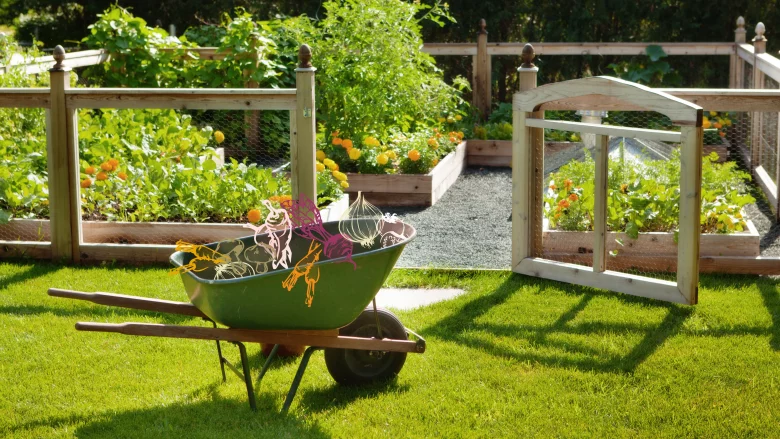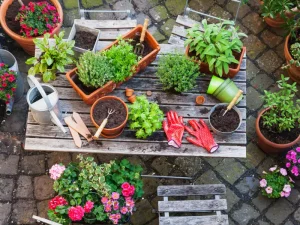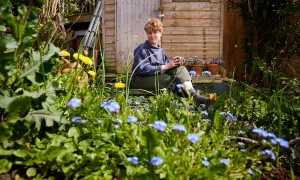to suggest
Starting the journey towards mastering organic gardening is a rewarding endeavor that will not only enrich your life but also make a positive contribution to the environment. Organic gardening is more than just growing plants; it is a holistic approach to living in harmony with nature. Let’s explore the essential tips to guide beginners on this green adventure.
Benefits of Organic Gardening
Impact on the environment
One of the main benefits of Mastering Organic Gardening: Tips for Beginners is its positive impact on the environment. Unlike conventional gardening, organic methods avoid the use of synthetic pesticides and fertilizers, reducing harmful runoff to water sources. By choosing organic products, you play a crucial role in protecting biodiversity and maintaining healthier ecosystems.
health benefits
In addition to the environmental benefits, organic gardening has many health benefits. Eating organically grown fruits and vegetables means fewer pesticide residues on your plate. This means eating healthier and minimizing exposure to harmful chemicals linked to a variety of health problems. As a beginner, understanding these benefits can serve as motivation and reinforce the importance of your journey.
Start it
Choose the right location
A successful organic garden starts with choosing the best location. Consider factors such as sun exposure, soil quality and proximity to water. Sufficient sunlight ensures good plant growth, while well-drained soil prevents waterlogging and root rot. These considerations lay the foundation for a thriving organic garden.
Choose organic seeds and plants
The cornerstone of mastering organic gardening is careful selection of seeds and plants. Choose organic, non-GMO seeds to maintain the integrity of your garden. Choosing local plant varieties suited to your climate can increase resilience and reduce the need for external inputs. This careful selection ensures a healthier garden from the start.
preparation of the land
Compost technology
Organic gardening thrives in nutrient-rich soil, and composting is a valuable practice for achieving this goal. Composting food waste, yard waste and organic matter can improve soil fertility. The resulting compost acts as a natural fertilizer, promoting plant growth and minimizing the need for synthetic alternatives.
Importance of soil health
Understanding soil health is crucial to organic gardening. Perform a soil test to evaluate pH and nutrient content. Adjustments can then be made using organic amendments to create the best environment for plant growth. A healthy soil supports healthy plant growth and increases resistance to diseases and pests.
Essential tools
Essential garden tools
Equipping yourself with the right tools is crucial to mastering organic gardening. Basic tools such as hand trowels, pruners and weed removers can help with a variety of tasks. Choose high-quality, durable tools to make your gardening work more efficient. A well-maintained set of tools ensures a smooth gardening experience, so you can focus on caring for your plants.
Biological pest control methods
Organic gardening does not use harmful chemicals to prevent and control pests. Companion planting is an effective strategy in which certain plants naturally repel pests. Additionally, introducing beneficial insects such as ladybugs and praying mantises can create a balanced ecosystem that keeps unwanted pests at bay.
watering strategy
Correct watering techniques
Water is a precious resource, and efficient watering is the foundation of organic gardening. Mastering the art of proper watering requires understanding the water needs of different plants. Use mulch to retain soil moisture and reduce evaporation. Consistent, careful watering promotes healthy plant growth while conserving water supplies.
rainwater collection
An environmentally friendly way of watering is collecting rainwater. Set up rain barrels to collect rainwater for use in the garden. This not only reduces dependence on municipal water sources, but also provides plants with naturally balanced water without the additives found in tap water.
It is a cost-effective and sustainable practice at home. Compost tea, bone meal and seaweed extract are examples of homemade organic fertilizers. These natural alternatives provide plants with essential nutrients without the environmental impacts associated with synthetic fertilizers.
natural soil enrichment
In addition to homemade fertilizer, ground cover is a powerful natural soil enrichment technique. Planting cover crops out of season prevents soil erosion, increases organic matter and fixes nitrogen. This enriches the soil and promotes a healthy, balanced ecosystem in your organic garden.
integrated pest control
companion plants
Integrated pest management (IPM) is the cornerstone of organic gardening. Companion planting involves strategically placing mutually beneficial plants nearby. For example, growing marigolds next to vegetables can prevent nematodes. Understanding these natural relationships is critical to minimizing pest problems.
beneficial insects
Encouraging beneficial insects is another aspect of integrated pest management. Ladybugs, lacewings and predatory beetles naturally control pest populations. Creating a hospitable environment for these insects provides natural and sustainable methods of pest control in your organic garden.
Sustainable garden design
Create a nature-friendly garden
An often overlooked aspect of organic gardening is creating a garden that welcomes wildlife. Birds, bees and butterflies play a crucial role in pollination and pest control. Add native plants, bird feeders and water sources to attract and support a variety of wildlife in your garden.
vertical garden ideas
Maximize space and aesthetics with vertical gardening. Growing plants vertically not only saves space, but also adds visual interest to your garden. Think of vertical constructions such as fences and hanging planters. This sustainable design approach is a creative way to enhance your organic gardening experience.
Frequently Asked Questions Troubleshooting
Identify plant diseases
Part of mastering organic gardening is dealing with common problems effectively. Learn to recognize plant diseases early, so that timely action can be taken. Neem oil, garlic spray and copper fungicides are organic solutions to combat diseases without harming beneficial organisms.
dealing with weeds
Weeds are an ongoing challenge for any garden. Organic weed control includes mulching, hand weeding and the use of natural herbicides such as vinegar. By removing weeds quickly, you ensure that they do not compete with your plants for nutrients and sunlight.
success story
The real experience of an organic gardener
Be inspired by the success stories of other organic gardeners. Many people have overcome challenges and achieved great results through dedication and sustainable practices. These stories serve as valuable lessons and inspire beginners to continue on their journey to mastering organic gardening.
Overcome challenges
Every gardener faces challenges, but overcoming them is part of the harvest journey. Whether it’s dealing with unpredictable weather or learning from initial failures, perseverance and adaptability are key. Celebrate the small victories and learn from setbacks to continually refine your organic gardening methods.
Mastering Organic Gardening: Tips for Beginners
Patience and consistency
Mastering organic gardening is a gradual process that requires patience and consistency. Embrace the learning curve and don’t be discouraged by initial setbacks. As you gain experience, you will develop an intuitive understanding of your garden’s unique needs. Consistent care and attention ensures the best results in organic gardening.
celebrate small victories
Celebrate the small victories along the way. From the first germination to the successful harvest: every achievement is a testament to your dedication. Share your successes with a growing community of organic gardeners and foster a sense of camaraderie and mutual support.



